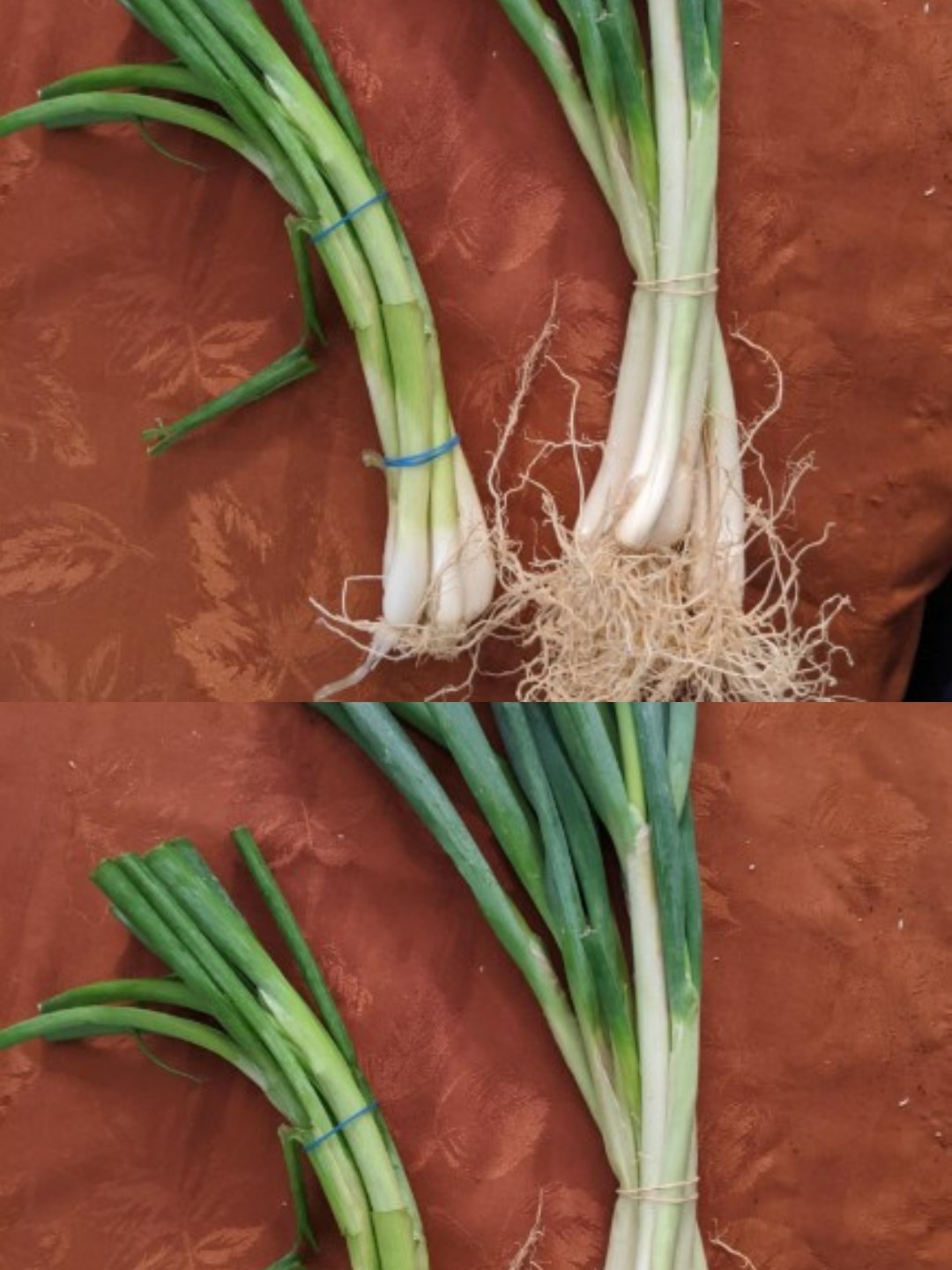A fresh finishing garnish for deviled eggs, soups, and potatoes
Mixed into soft cheeses, dips, and compound butters
Sprinkled over finished seafood or chicken dishes
📊 At-a-Glance Comparison Chart
Ingredient Bulb Flavor Profile Best For
Scallions/Green Onions Small, straight Mild, fresh, crisp All-purpose; raw or quick-cooked
Spring Onions Small, rounded Stronger, sweeter Grilling, roasting, sautéing
Chives None Delicate, mild, garlicky Fresh garnish only
🔄 Substitution Guide
Scallions for Green Onions (or vice versa): ✅ Yes, perfect swap.
Scallions for Spring Onions: ✅ Yes, but expect a milder flavor. Your dish will be less pungent.
Spring Onions for Scallions: ⚠️ Use less, as the flavor is stronger.
Chives for Scallions/Spring Onions: ❌ Not recommended for cooking. They are too delicate and will lose their flavor. Only use as a garnish substitute.
Scallions for Chives: ❌ Not ideal for garnish. Scallions are too harsh and lack the subtle garlic note.
continued on next page
🧊 How to Keep Them Fresh
Scallions/Green Onions: Wrap in a slightly damp paper towel, place in a plastic bag, and store in the crisper drawer. OR, stand them upright in a jar with an inch of water, cover loosely with a bag, and refrigerate.
Spring Onions: Store like scallions, or trim the greens and place the bulbs in a jar of water in the fridge.
Chives: Wrap in a dry paper towel, place in a sealed bag, and refrigerate. For long-term storage, chop and freeze in an ice cube tray with water or oil.
Final Tip: When in doubt, remember this rule of thumb: No bulb? It’s mild. A small bulb? It’s stronger. Hollow stems? It’s for garnish. Happy cooking
ADVERTISEMENT

